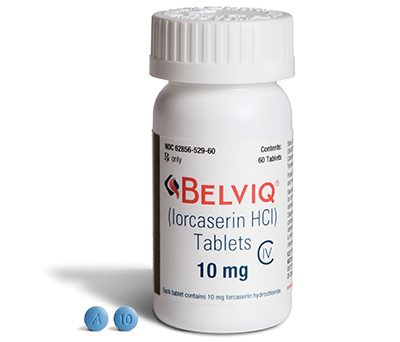With Orexigen and Takeda’s weight-loss drug Contrave (naltrexone and bupropion) on the market as of last month, the triumvirate of new prescription obesity medications, which includes Vivus’s Qsymia (phentermine and topiramate) and the Arena/Eisai drug Belviq (lorcaserin), would appear set to take on the health problem that the Centers for Disease Control and Prevention has declared an epidemic.
Although sales have not skyrocketed for any of these newcomers, Arena’s third-quarter results and an obesity update from PBM Express Scripts indicate that the drugs are making progress: Arena reported $5.7 million in sales for the quarter, compared to the same period last year when it pocketed just over $2 million in sales for Belviq, and also noted that third-quarter sales bounced 30%, to 143,000 prescriptions, compared to prescriptions written in the second quarter of this year.
This may seem like minimal growth to investors, but it represents a categorical concern for downstream healthcare partners. Sharon Frazee, Express Scripts’s Research & Analytics VP, blogged last week that the historically low-use of prescription obesity medications has come to an end, and that “utilization of obesity drugs has increased nearly 21% from the same time last year.” Frazee noted that category costs are also climbing as doctors gravitate towards “newer, more expensive medications.” In terms of Contrave, Franzee notes this means assessing a chronic-use drug that is pegged to cost between an estimated $1,200 and $1,600 per year, per patient based on industry data. [Update: Takeda, which handles Contrave’s commercialization tells MM&M that the price comes down to around $70 per month per patient, or around $840 per year, regardless of insurance status.]
Slowish payer uptake has been one reason the drugs have not become immediate blockbusters, but a study among bariatric surgery candidates by researchers at Toronto’s University Health Network hints at patient discomfort with prescribed obesity treatments. In this study of 1,644 patients who were sent to the bariatric surgery division between 2008 and 2011 only 45% went through with the procedure, and it was not because they were turned down. Instead, researchers found that “the majority of attrition appears to be the result of patient-self-removal.” This takes on further significance when considering the added factor patients could not cite cost as a reason for backing out of the publicly funded program.
Doctors are not sure why so many patients refused to accept the surgery, but they did find that increased health risks did not nudge patients into operating rooms. Instead, they found that men were twice as likely as women to opt out of the surgery even though they typically had higher BMIs.
Meanwhile, findings released by The Obesity Society Monday show that behavioral modification programs have been recommended to 65% of Americans as a means to handle obesity and that 83% of these patients are considered candidates for prescription weight-loss medications. The professional organization does not address non-compliance issues but does indicate that moving more patients from the prescription-free category to prescription-use category is a matter of getting more professionals onboard with prescribing weight-loss tools. The Obesity Society, along with other members of the Obesity Action Coalition, has been pushing for patients to be given greater access to obesity-moderating healthcare, through efforts including support of the 2013 Treat and Reduce Obesity Act. The act’s goal is to increase access to obesity screening, counseling and prescription drugs to Medicare recipients under Medicare Part D.
Government transparency site Govtrack.us says the legislation has a 1% chance of passing and that the House version, H.R.2415 was referred to a committee in June of last year, while the Senate version, S.1184, was also shunted to committee review in June 2013.
The Obesity Society said the significance of Monday’s findings is that it is proof healthcare practitioners “from primary care physicians to registered dieticians” can take a greater role in making patients aware of medical interventions that can help manage obesity.
Obesity medication companies have been wooing professionals since the beginning, with various amounts of manpower: Arena’s head count totaled around 400 Eisai reps talking up the drug as 2013 wrapped, while Takeda and Orexigen have released 900 reps to court primary care physicians, cardiologists and OB/GYNs, in addition to deploying a force that will concentrate on payers. Go-it-alone Vivus has taken a lower-key approach in terms of sales rep headcount.








